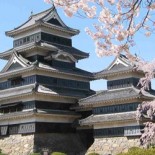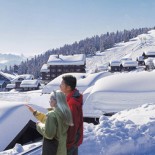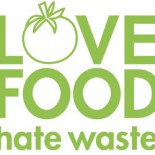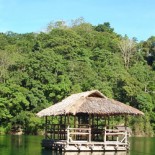Journals
Upcoming Releases
The publication of Volume 1 for 2022 is planned for March. Students, Professionals and Academics worldwide are all welcome to publish their hospitality and tourism research here. Read our Editorial Policy to apply.
2012 Volume 3 Journal
-
Castle Tourism in Japan
Posted on October 23, 2012 | No CommentsHave you ever take a tour to the marvellous and strongest Odawara castle, or the biggest and one most well built Osaka (Himeji) castle? These are two castles, which are famous for, not just its greatness and architecture, but also its high percentage of the maintenance of their historical remains. Himeji Castle, in Osaka is one of the three most famous castles in Japan, as well as the Kumamoto castle in Kyoshui and the Matsumoto castle in Nagano. -
Surgery Tourism: Development and Future
Posted on October 23, 2012 | No CommentsThe idea of Cosmetic Surgery is getting more famous starting from the end of 90s. There were more cases of people having plastic surgery which finally result in more people willing to have a plastic surgery. United States, Unites Kingdom, India and Thailand are the main countries involve in this tourism industry. Factors affecting this industry are the reasons of consumers’ decisions. These factors are, for example money factors, marketing factors and the opinion of the consumer. A part from the bigger number of tourist year by year, they also affect the trend development of the industry in the future. -
Impacts of Climate Changes on Switzerland’s Winter Tourism Industry
Posted on October 23, 2012 | No CommentsSwitzerland has many high mountains and hill tops which has been turned into a ski resort, sight seeing and hiking area. During winter season, Switzerland’s alpine resort will be swarmed with tourist that comes from various parts of the world. There are many activities that Switzerland has to offer. Activities such as snowboarding, skiing, snow hiking, cross-country skiing and many more. Winter tourism plays a big part in the rise of Switzerland’s economy. It has contributed a lot in Switzerland’s employment level -
Sexual Harassment in the Room Service Department in the Hospitality Industry
Posted on October 23, 2012 | No CommentsThe author is puzzled about why sexual harassment continues to be such a persistent problem in the workplace despite federal and state laws, the proliferation of corporate policies, thousands of lawsuits, many of which are successful, and the fair amount of research suggesting enormous costs to businesses that allow sexual harassment (Hauserman, 2006, 182). -
Marketing Molecular Gastronomy as a Tourist Attraction
Posted on October 23, 2012 | No CommentsFood has always played an essential role in the tourism sector. Destination consultants, Aboutourism (2011), concurred by stating that food has an unmistaken importance to tourists. It further commented that a huge proportion of the tourist consider dining as an important activity during their travels. The experience alone just by dining creates an impact on the consumer’s perception about the restaurant as a whole. With relations to Kotler (2009), guests can leave a restaurant with an empty stomach but not with an empty head as the impression about the quality of the service and food will always be in their minds. According to Hall et al. (2004) -
Korean Medical Tourism
Posted on October 23, 2012 | No CommentsThese days, Medical Tourism is generally very popular among the whole world. Millions of people are traveling to foreign countries to experience medical tourism. However, what does medical tourism means exactly? By Global Spa Summit LLC (2011), Medical Tourism is defined as: ‘’ Medical tourism is a term involving people who travel to a different place to receive treatment for a disease, ailment, or condition, and who are seeking lower cost of care, higher quality of care, better access to care, or different care than they could receive at home.” -
High Food Wastage in the Hospitality Industry
Posted on October 23, 2012 | No CommentsMany environmentally friendly organisations urge that it is a high time to pay attention and take action to stop food wasting, or else society will need to pay for the food crisis. According to several researchers, catering is the part, which shows the highest rate of food wastage. Therefore, in this research paper, the author is going to find out the reasons for food waste, the effects it creates plus provide some solutions to minimize the negative effects of this international issue. -
Factors Influencing Travel and Tourism Consumer Behaviour Between Russia and Turkey
Posted on October 23, 2012 | No CommentsFor many centuries, human always have an irresistible desire to travel. The most popular theme in this topic is the question: what encourages people for traveling? Without getting involved into philosophical discussions, people are going to travel for many reasons. One of the common examples is to get rid of daily routine, which is spoiling all the highlights of our life. Some scientist believe that travelling for a long distance can help to cope with depression and stress. In a modern world there are many factors that are influencing travel and tourism consumer behaviour in different countries. -
Ecotourism
Posted on October 23, 2012 | No CommentsThere is no worldwide definition that everyone agrees with. One of the first definitions that defined ecotourism was: ‘"That form of environmentally responsible tourism that involves travel and visitation to relatively undisturbed natural areas with the object of enjoying, admiring, and studying the nature (the scenery, wild plants and animals), as well as any cultural aspect (both past and present) found in these areas, through a process which promotes conservation, has a low impact on the environment and on culture and favors the active and socioeconomically beneficial involvement of local communities" -
Death as a Commodity: Thanatological Perspective on Motivational Determinants of Dark Travellers. A Case Study of Fukushima.
Posted on October 23, 2012 | No CommentsIn the increasingly growing contemporary tourism community throughout the world, the phenomenon of travelling and visiting destinations and sites, which are directly or indirectly associated with death, disasters caused by human factor or nature - is gaining popularity (Sharpley and Stone, 2009). The history of such kind of touristic praxis is very long and dark tourism itself is not a new phenomenon: “people started to be the participants of dark tourism, when there was no even such term like dark tourism or tourism at all” (Gorbenko, 2010).











